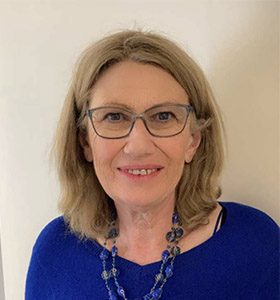
He Ara Oranga: Report of the Government Inquiry into Mental Health and Addiction sets out a clear aspirational vision for the future mental health and wellbeing of all. As the report states, there is no health without mental health, but then there is no mental health without physical health.
If equity in health is a priority, then nurses need to understand the whole person and their health needs. When someone presents to any part of the health system, the opportunity must be used to maximise health, not just fix one part of the body or mind.
As a profession, we need to stop thinking of ourselves as “mental health nurses” – the term is outdated. We are nurses with specialist knowledge; this may be mental health, addictions, intellectual disability or a combination of all, and our knowledge and skills also include physical health. We have the same competencies as every other nurse, and the same responsibility for physical health and to support the health needs of the whole person.
There has been significant feedback about the lack of mental health sector input into the Nursing Council’s review of the RN education programme standards, so I am pleased the council is open to ongoing discussion. I would like to see the curriculum’s theory and clinical components evenly split between physical and mental health or, even better, integrated so there is no split. The current curricula focus on hospitals as the centre of specialist health care. This medicalises the complexity of issues people present with, and misses the opportunity to maximise mental health and wellbeing for all.
The focus on hospitals is further reinforced by the safe staffing priority. I embrace the idea of safe staffing and the tools we use to help achieve the numbers required to safely staff inpatient facilities. The tools are not ideally suited to mental health inpatient wards but are the best around at this time.
However, time to really care, to show care and compassion in all areas, is undervalued by these tools. The focus on tasks within inpatient services reinforces that care mainly happens in hospitals. However most mental health, addictions and intellectual disability services are delivered in the community. This means that in terms of safe staffing and the time to care, most mental health nursing work is invisible.
Nurses work across their communities. Do we, as a profession, need to have more of a community focus and ensure our employers also see the value of this focus? The pay equity debate in aged care and non-governmental organisations shows where our most vulnerable are cared for, by the least well remunerated.
Care and compassion are essential for effective nursing care, but also essential to the healthy functioning of nurses and teams.
If we don’t look after ourselves, how can we look after others? Nursing is at a crisis point, in terms of recruitment and retention, both in mental health and other sectors. Does moral distress contribute to this? Nurses need to feel they are making a difference to people’s lives. They need job satisfaction and they need to have a work/life balance with work that doesn’t leave them feeling distressed.
Undergraduate education, health service providers and employers need to walk the talk in terms of the mental health and wellbeing challenge – but so do nurses. Yes, we do require specialist knowledge, but let’s not forget our generalist knowledge and skills, and value care and compassion, as this is at the heart of who we are as nurses.
Heather Casey, RN, BN, PGCert(addiction & coexisting disorders) MA(nurs), is director of nursing for mental health, addictions and intellectual disability services at the Southern District Health Board.


